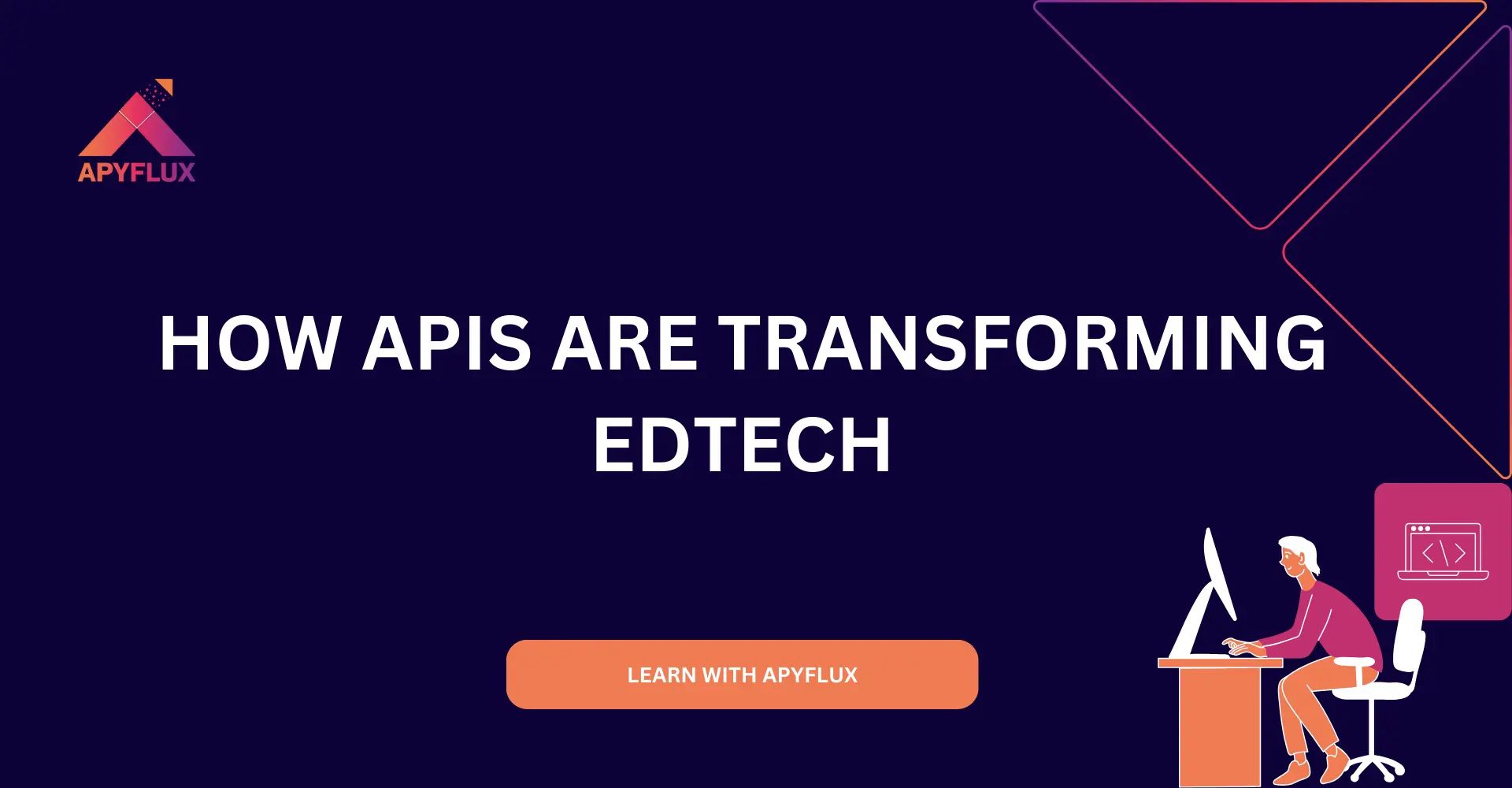Introduction
Technology has revolutionized every industry, and education is no exception. With the rise of digital learning platforms, artificial intelligence, and interactive tools, the education landscape is evolving rapidly. One of the key enablers of this transformation is Application Programming Interfaces (APIs). APIs facilitate seamless connections between various EdTech platforms, creating more engaging and efficient learning experiences.
Learning Management Systems (LMS) are central to modern education technology. APIs help in their integration and scalability, enabling institutions to offer dynamic, personalized, and collaborative learning environments. From API use cases in EdTech apps to API marketplace Apyflux, let’s explore how APIs are shaping the future of online education.
The Importance of APIs in EdTech
Why APIs Are Vital for EdTech Platforms
APIs play a crucial role in enabling interoperability between different education tools. They allow seamless integration of various systems, enhancing the overall functionality of EdTech platforms. Here’s why APIs are indispensable in online education management:
- Seamless Integration: APIs allow different platforms to communicate effectively, ensuring smooth data flow.
- Improved Accessibility: Through APIs, students and educators can access learning resources anytime, anywhere.
- Scalability: API-powered platforms can scale effortlessly to accommodate more users without compromising performance.
Overview of LMS Integration with APIs
Learning Management Systems (LMS) are at the core of many educational institutions. APIs enable LMS to integrate with other EdTech tools, enhancing their capabilities. Some key benefits include:
- Integration with Video Conferencing Tools: APIs connect LMS with platforms like Zoom and Microsoft Teams, ensuring seamless virtual learning.
- Content Library Access: APIs allow LMS platforms to pull educational resources from third-party providers.
- Better User Experience: APIs enable single sign-on (SSO), making it easier for students and educators to access different tools without repeated logins.
API Use Cases in EdTech Apps
APIs contribute to various aspects of online learning, from personalization to automation. Let’s look at some of the most impactful use cases:
Personalized Learning Experiences
One of the most significant advantages of APIs in EdTech is the ability to tailor learning experiences to individual students. API use cases in EdTech apps include:
- Adaptive Learning: APIs analyze user behavior and recommend tailored courses and content.
- AI-Powered Assessments: APIs enable intelligent grading systems that assess student responses and provide instant feedback.
Seamless Access to Online Tutorials
API for online tutorials plays a pivotal role in integrating various learning resources within LMS platforms. Examples include:
- Embedding Video Content: APIs connect LMS with YouTube, Vimeo, or custom video libraries.
- Interactive Quizzes: APIs integrate interactive assessments, making online tutorials more engaging.
- Gamification Elements: APIs bring game-based learning features to EdTech platforms, making learning more enjoyable.
Automation of Administrative Tasks
Administrative workload can be significantly reduced using APIs. Key areas include:
- Attendance Tracking: APIs automate student check-ins during online classes.
- Grade Reporting: APIs fetch student grades and update dashboards in real-time.
- Scheduling: APIs integrate with calendar tools to automate class and exam scheduling.
Real-Time Data Synchronization
APIs ensure data consistency across multiple devices and platforms. Real-time synchronization enhances collaboration and provides up-to-date insights into student performance.
API for Online Education Management: Enhancing Collaboration
APIs for Collaborative Tools
Collaboration is key to effective learning, and APIs enable seamless integration of various collaborative tools, such as:
- Discussion Forums: APIs integrate forums into LMS platforms, allowing students to engage in academic discussions.
- Group Projects: APIs connect LMS to shared workspaces like Google Docs or Trello.
- Peer-to-Peer Feedback Systems: APIs enable peer review and feedback sharing, fostering interactive learning.
APIs for Monitoring and Analytics
Educators and administrators rely on data to assess student progress and course effectiveness. APIs facilitate:
- Real-time Performance Tracking: APIs fetch student progress data and display real-time analytics.
- Course Effectiveness Analysis: APIs pull insights from user engagement metrics to improve course content.
Key Features to Look for in an API
Selecting the right API is crucial for maximizing efficiency and user experience. Consider the following:
- Scalability: Choose APIs that can handle increasing user loads.
- Security: APIs should comply with educational data protection standards.
- Cross-Platform Compatibility: APIs should work across different devices and operating systems.
Role of API Marketplace - Apyflux
For EdTech developers, API marketplace Apyflux provides a comprehensive resource for pre-built APIs tailored to educational needs. Leveraging Apyflux offers several advantages:
- Reduced Development Time: Pre-built APIs allow faster integration, saving time and resources.
- Diverse API Selection: Apyflux offers APIs for content delivery, collaboration, analytics, and more.
- Focus on Innovation: Developers can prioritize user experience and innovation instead of backend integration challenges.
Emerging Trends in EdTech APIs
AI-Driven Personalization
AI-powered APIs are transforming EdTech by offering personalized learning experiences. Some key trends include:
- Intelligent Course Recommendations: APIs use AI to suggest courses based on learning patterns.
- Adaptive Assessments: AI-driven APIs adjust question difficulty based on student responses.
Integration with Emerging Technologies
The rise of AR and VR in education has been enabled by APIs. Examples include:
- AR/VR Learning Modules: APIs connect LMS with AR/VR tools for immersive learning.
- Gamification APIs: APIs help integrate reward-based learning experiences, boosting student engagement.
Chatbot APIs for Student Support
Chatbots have become an integral part of EdTech. API-driven chatbots provide:
- Instant Query Resolution: AI chatbots answer common student queries in real time.
- 24/7 Support: APIs ensure round-the-clock assistance for students and educators.
Conclusion
APIs are revolutionizing the EdTech landscape by enabling seamless integration, personalization, and automation. Learning Management Systems, online tutorials, and collaborative tools all benefit from API-driven enhancements. By leveraging APIs, educators can provide a more engaging, efficient, and personalized learning experience.
For EdTech developers looking to streamline their platforms, API marketplace Apyflux offers a wide range of solutions to simplify integration and accelerate innovation. Explore Apyflux today to discover powerful APIs that can transform the future of education technology.
